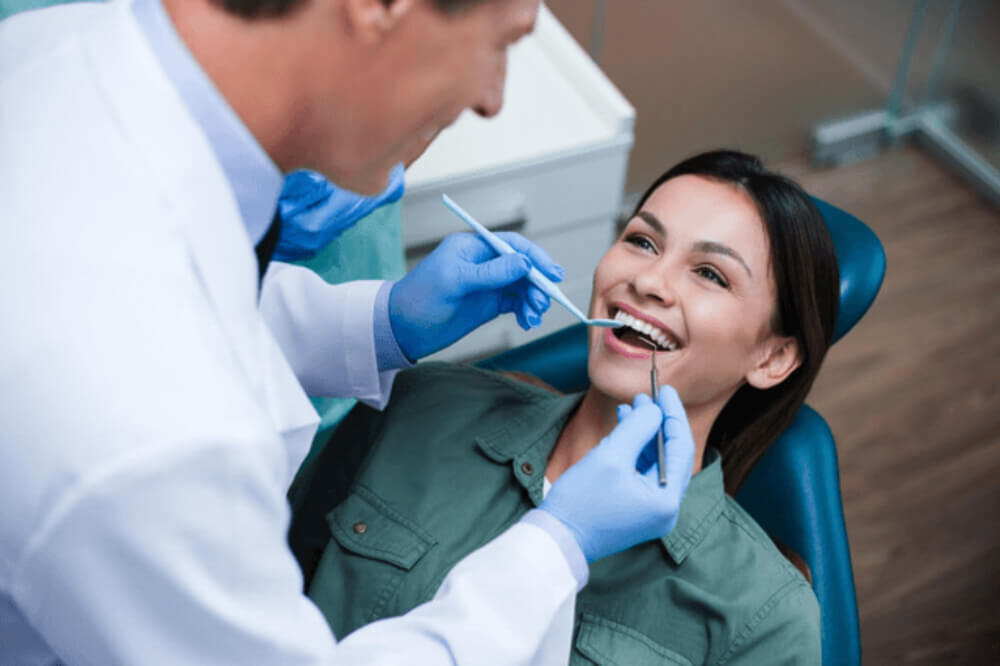All medical procedures can be stressful. Your periodontist in Los Angeles understands that dental procedures, including tooth extractions, can be even more stressful for many people. Here are several steps to take in preparation for your procedure that will help the procedure go smoothly and speed up your recovery.
Provide all relevant information
Your periodontist needs to fully understand your medical history. This is especially true if you are a first time patient at the periodontist’s office.
Be sure that the clinic has your complete medical history, including whether you have a history of conditions relating to possible infection such as:
- any history of bacterial endocarditis
- any congenital heart defects
- any mechanical or replacement biological heart valves
- any history of liver disease
- an impaired immune system
If you have any condition, like diabetes, that affects your ability to fast (avoid eating) before the procedure and inform your periodontist.
Before undergoing any tooth extraction in Los Angeles, advise the clinic of every medication that you are taking, whether prescription or over-the-counter and including any recreational drugs. The periodontist needs that information to ensure that you do not experience any negative interactions with drugs that the clinic will use during your procedure. If you are taking blood thinners, you may be asked to stop taking them before the procedure.
Consider the anesthesia and painkillers specifically
You will likely receive sedatives, anesthesia and painkillers before, during, and after your extraction procedure. If you have had experience with any of those medications, advise the clinic of those experiences and any side effects.
If you have particular concerns about the use of narcotic pain medications that can be habit-forming, discuss that issue specifically with your periodontist.
Ask every question you have
Having the opportunity to answer your questions will comfort the periodontist that you have considered the procedure carefully and will give you (the patient) an opportunity to vent any building or pent up stress over easily answered questions.
Plan ahead for insurance issues
The best time to query insurance coverage and to figure out what steps you need to take to make and receive payment for a claim is before the procedure. Even before your appointment is scheduled, contact your insurance company about the pending procedure and ask what steps need to be taken.
Plan ahead for transportation
Even assuming all goes smoothly, you will not be able to drive home after the procedure. You will be impaired, whether or not you are under general anesthesia. Plan ahead for a ride home, whether from a partner, colleague, family member, taxi cab, or ride-sharing service.
Fasting and smoking
Avoid eating for 12 hours before your extraction, particularly if you will receive general anesthesia. Fasting before the surgery will help prevent nausea. If you will receive just local anesthetic, the fasting period may be shortened. Do not smoke for 12 hours before your extraction (and for 24 hours afterward).
Self-care after the procedure
Arrange for some time off of work to recover from the procedure. If you are a caregiver, consider obtaining backup support. Your periodontist is going to recommend that you stick to soft foods for a while once you’re ready to eat. Have some stocked or prepared in advance. Some good options are yogurt, smoothies, and protein drinks.
When your tooth is removed, it will leave behind an empty space at the extraction site. That site will be protected by a blood clot. That blood clot is vulnerable to being dislodged. If it is dislodged, your nerves will be exposed — something very painful. To avoid a dry socket, do not drink from a straw, spit, or rinse your mouth vigorously until given permission to do so by your surgeon. To avoid dry sockets and promote healing, you must not — if you’re a smoker — smoke for 24 hours after your procedure.
Dress appropriately
Dress comfortably in loose-fitting clothing. Wear a short-sleeved shirt to allow for administration of any IV and in case that IV drips. Don’t wear jewelry, contact lenses, dark lipstick, perfumes, or body sprays. If you have hair that can fall into your face, keep it pulled back.
Symptoms to be concerned about
Your periodontist will tell you what to expect in terms of symptoms during your recovery. You should expect some soreness, tenderness, and swelling. If you experience any of the following symptoms, contact your periodontist immediately since they are an indication of a possible infection:
- Chest pain
- Shortness of breath
- Severe bleeding or swelling
- Fever or chills
- Nausea or vomiting
Periodontics in Los Angeles is performed by skilled, trained, and experienced professionals whose priority is your oral health, comfort, and recovery. Following these steps to prepare for extraction will enhance your procedure experience and speed up your recovery. If you have questions about tooth extractions in Los Angeles, contact a periodontist clinic near you.
